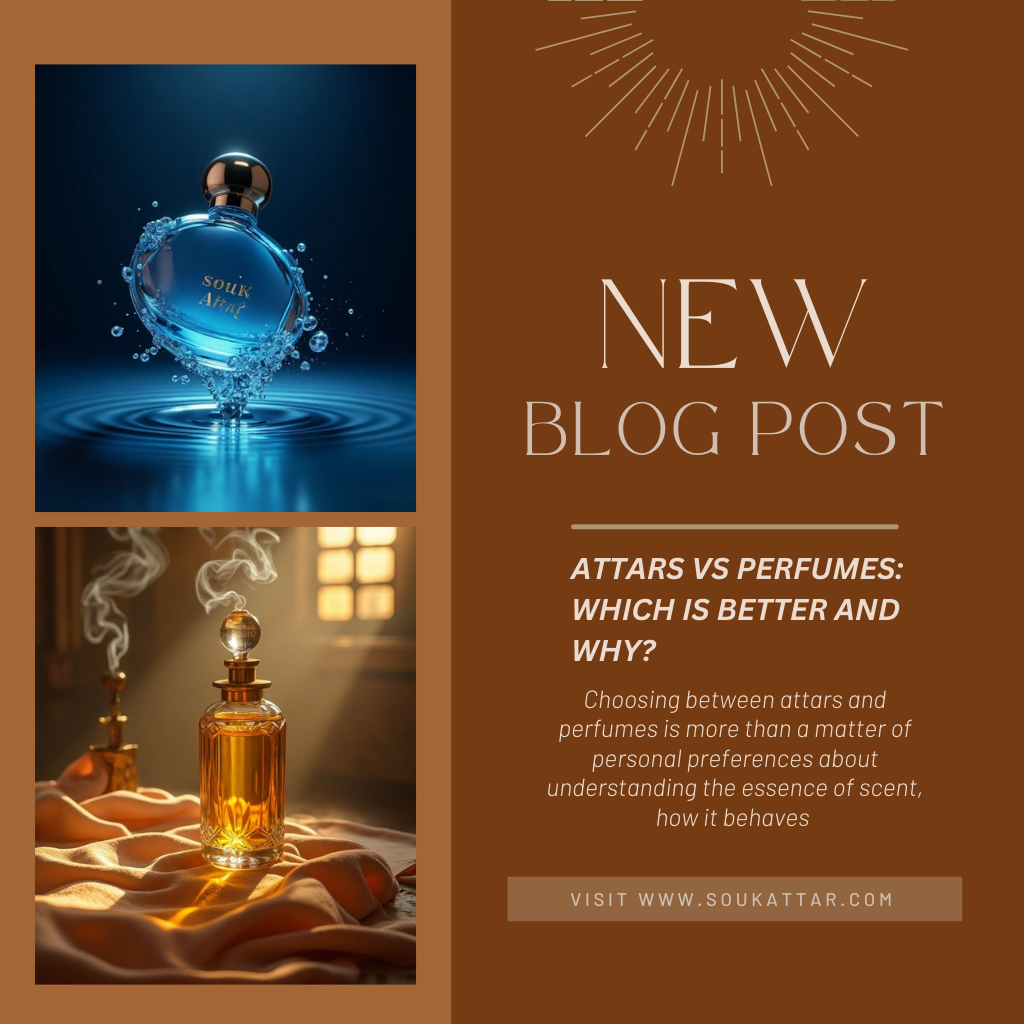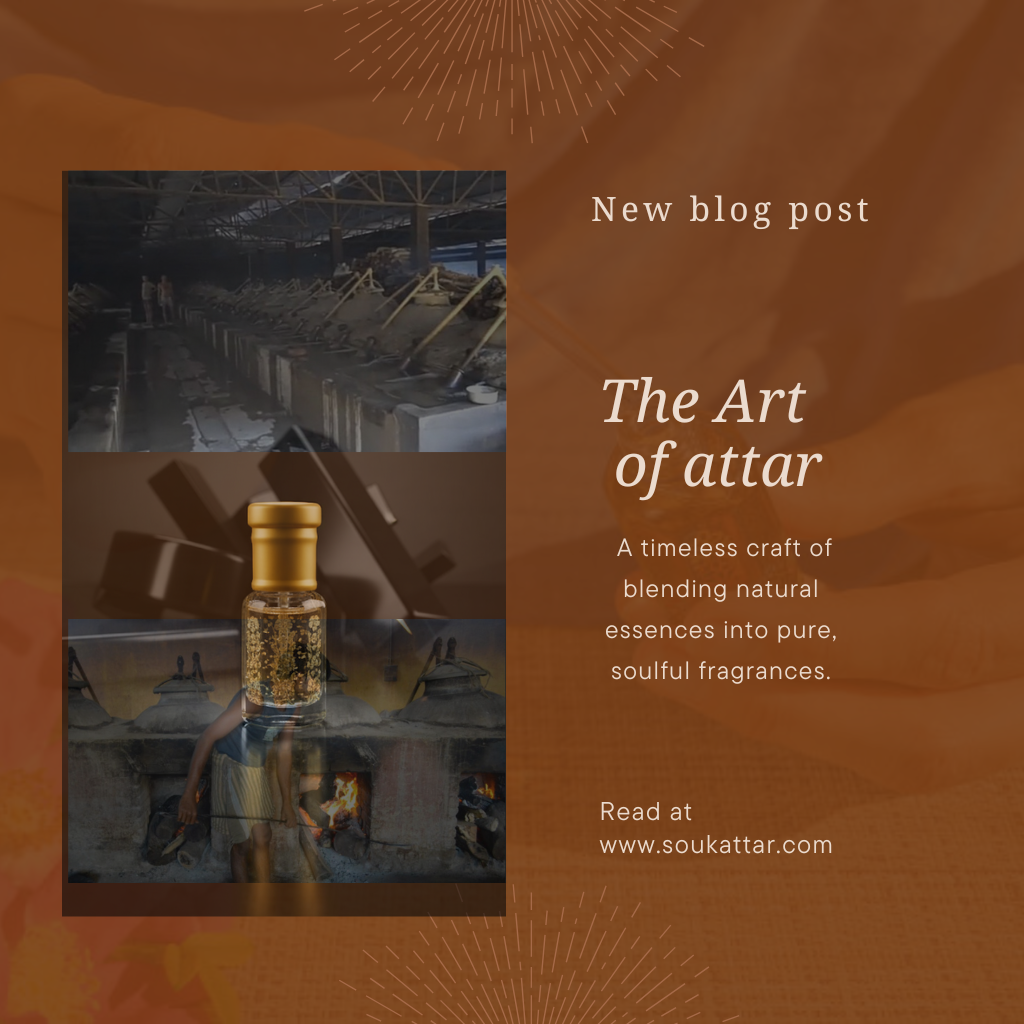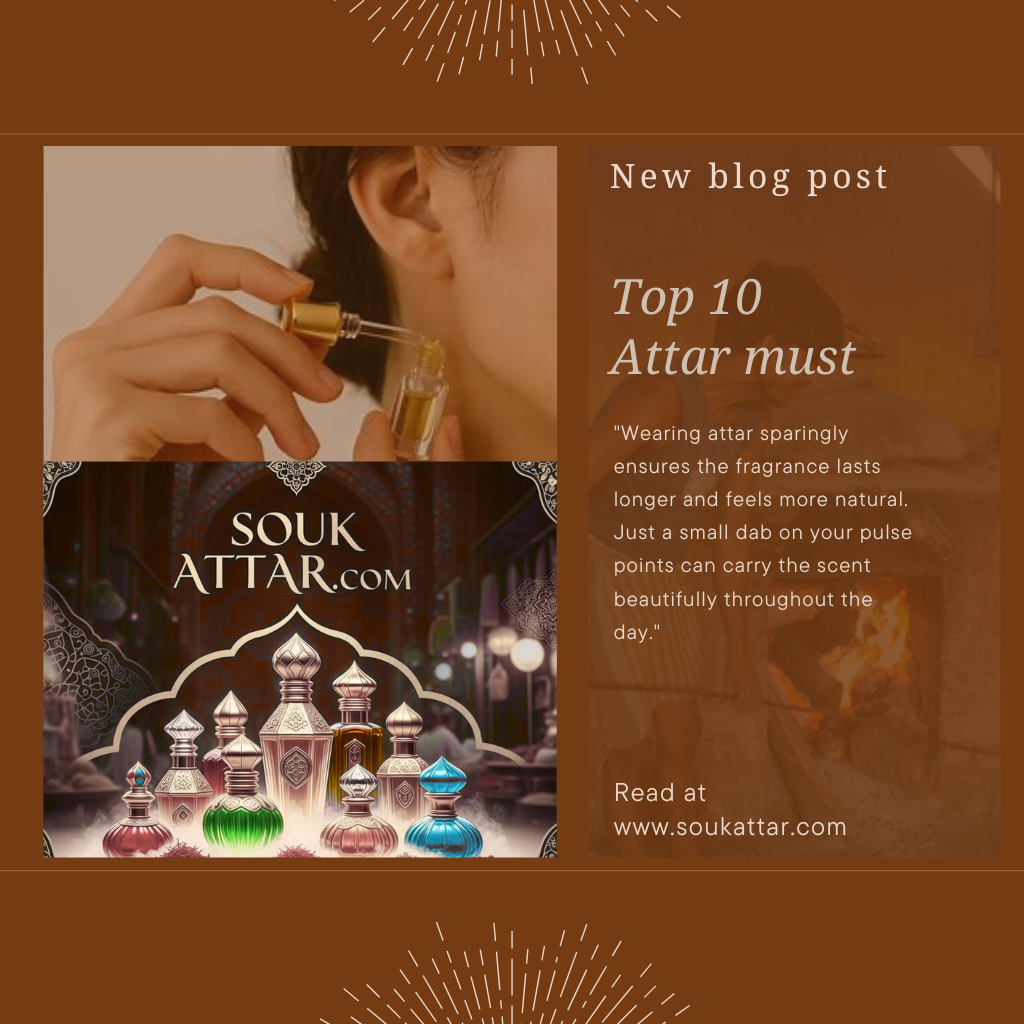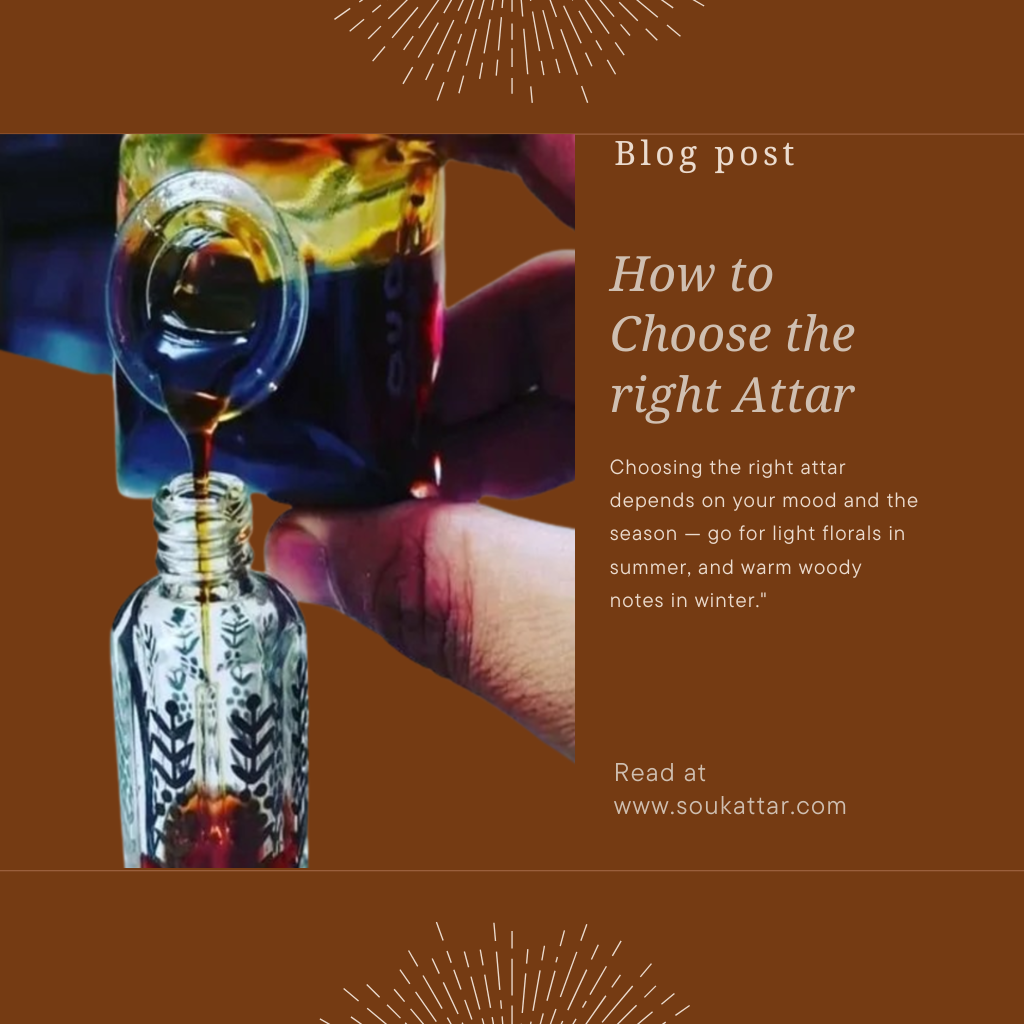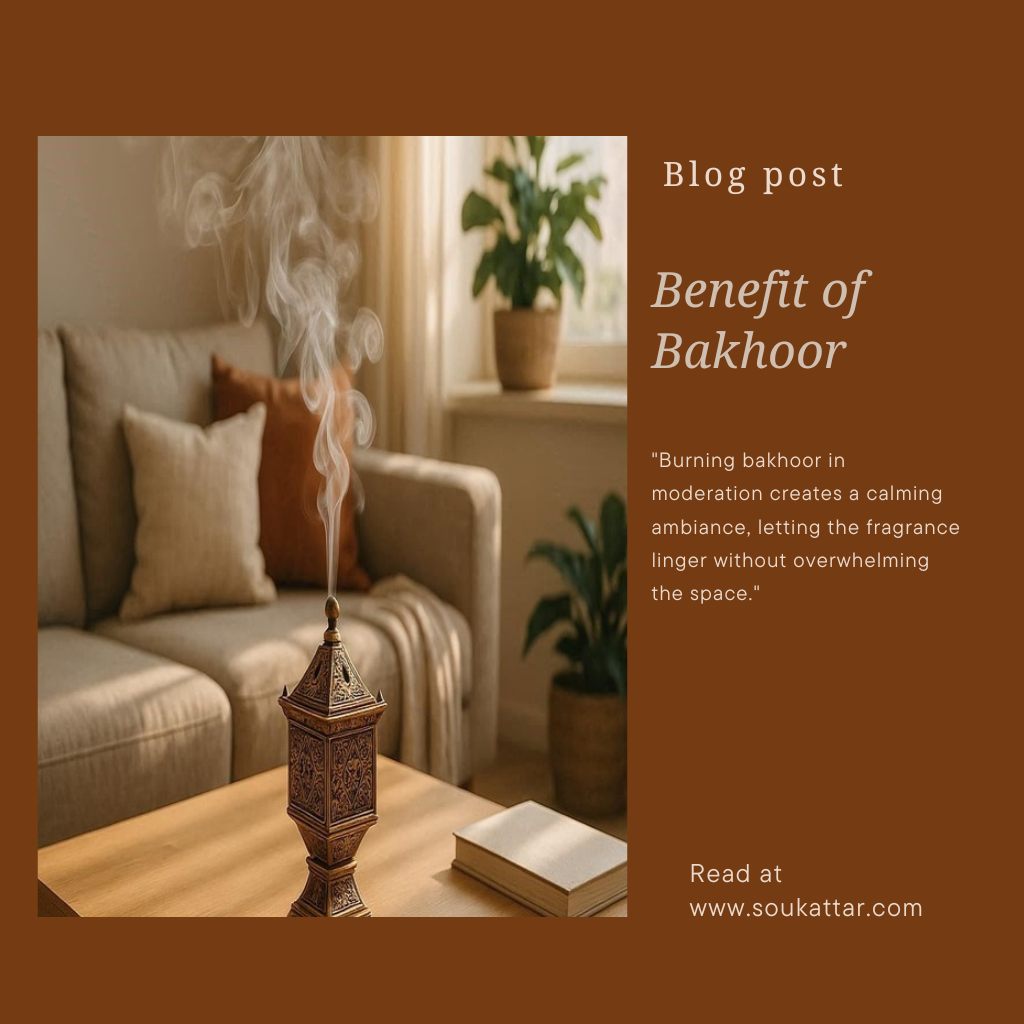
Attars vs Perfumes : Which is better and why?
In the world of fragrances, we are spoilt for choice. Rows upon rows of beautifully bottled perfumes dazzle us with their branding, celebrity endorsements, and seductive advertisements. But amid this modern glamour, there exists an ancient, quieter tradition, one that whispers rather than shouts. That tradition is the world of attars: natural, oil-based perfumes that have stood the test of time.
Choosing between attars and alcohol-based perfumes is more than a matter of personal preferences about understanding the essence of scent, how it behaves on your body, and what you ultimately want from your fragrance experience. Whether you're someone looking for skin-friendly scents, long-lasting impressions, or a more holistic connection to aroma, this comparison will help you see why natural attars are gaining renewed respect across the globe.
Let’s explore how attars and perfumes differ, starting with their origins and moving into a detailed comparison on skin-friendliness, longevity, purity, and emotional depth.
“Explore our natural attars collection, click here.”
1. What Are Attars?
Attars, also known as ittars, are traditional natural perfumes made by distilling flowers, herbs, spices, or resins into a base oil—most commonly sandalwood or carrier oils like jojoba or sesame. The process is centuries old, often passed down through generations of perfumers, especially in regions like India, the Middle East, and parts of Southeast Asia.
They are:
- Alcohol-free
- Highly concentrated
- Crafted using natural botanicals
- Often used for spiritual, therapeutic, or cultural purposes
Attars are not “perfumes” in the modern commercial sense—they are purer, quieter, and far more intimate.
2. What Are Alcohol-Based Perfumes?
Perfumes, as we commonly know them today, are usually alcohol-based fragrances made using synthetic aroma chemicals and essential oils. The alcohol serves as a carrier to lift the scent off the skin, creating an immediate but short-lived burst of fragrance.
These include:
- EAU de Toilette (lighter, less concentrated)
- EAU de Parfum (moderately strong)
- Parfum/Extrait (most concentrated but still alcohol-based)
They come in beautifully packaged bottles and offer a quick and strong fragrance experience, but often, that experience is fleeting or impersonal.
3. Skin-Friendliness: Attars Are Kinder to the Skin
One of the most important factors in choosing a fragrance, especially if you have sensitive skin is what goes into it.
Attars:
- Alcohol-free, making them non-drying and gentle.
- Free from synthetic preservatives, parabens, or allergens common in mass-produced perfumes.
- Ideal for people with allergies, eczema, or dry skin.
- Safe for direct skin contact, especially on pulse points.
Perfumes:
- Contain alcohol, which can be drying or irritating—particularly on sensitive or broken skin.
- Often include synthetic fixatives or colorants that may cause rashes or skin sensitivity over time.
- Strong perfumes can cause headaches or sneezing due to chemical ingredients.
Verdict: For skin-friendliness and natural absorption, attars are the clear winner. They nourish rather than irritate.
4. Longevity: Attars Last Longer—Naturally
Many people are surprised to learn how long attars can last compared to alcohol-based perfumes. Since attars are pure oils, they sit closer to the skin and unfold slowly over time.
Attars:
- Can last 8 to 24 hours, depending on your skin type and the nature of the oil.
- Continue to evolve over the day, revealing different layers and notes.
- Have a soft, persistent scent trail (sillage) that’s subtle but captivating.
- Often linger on clothes or scarves for days, without staining.
Perfumes:
- Due to alcohol evaporation, most lose their top notes within 2 to 4 hours.
- Require reapplication, especially lighter concentrations like EAU de toilette.
- Stronger perfumes may last 6–8 hours, but fade unevenly.
- The initial burst is intense but can feel overwhelming to some.
Verdict: For long-lasting fragrance that matures with time, attars offer a more enduring and graceful experience.
5. Purity and Ingredients: The Unmatched Integrity of Attars
We live in a world increasingly drawn to clean beauty and conscious choices. What you put on your body matters. Attars, in this context, represent an ancient standard of purity.
Attars:
- Made from natural flowers, resins, herbs, and spices distilled with water and oil.
- Contain no synthetic chemicals unless blended for commercial variants.
- Usually handcrafted in small batches by artisans and perfumers, with roots in traditional practices.
- Have spiritual significance often used during prayers, meditation, and rituals.
Perfumes:
- Often a mix of natural and synthetic aroma compounds.
- Include denatured alcohol, preservatives, dyes, and chemical stabilizers.
- Manufactured on large scales for mass-market appeal.
- Quality varies greatly between designer and drugstore brands.
Verdict: In terms of ingredient purity and production ethics, attars provide a more wholesome and natural alternative.
6. Emotional and Cultural Connection
There’s an intangible quality to scent that goes beyond science; it touches memory, spirituality, and even our sense of identity. Here too, attars offer something deeply personal.
Attars:
- Evoke emotional resonance with the scent of Mitti after rain, the floral hush of rose gardens, or the depth of aged oud.
- Used in Sufi rituals, Hindu temples, and traditional healing.
- Can be a signature scent that feels uniquely personal and sacred.
- Embody slowness, mindfulness, and ritual.
Perfumes:
- Linked to glamour, fashion, and pop culture.
- Often chosen based on branding or celebrity appeal.
- Great for special events but can feel detached from deeper emotional layers.
- Tend to be fast, loud, and fleeting in both scent and sentiment.
Verdict: If you value emotional depth, memory, and cultural continuity in your fragrance, attars carry that intimacy better.
7. Environmental and Ethical Considerations
With growing awareness around sustainability and ethical sourcing, consumers are beginning to ask: What’s the cost of my scent?
Attars:
- Produced in small batches with minimal waste.
- Use biodegradable natural ingredients.
- Support traditional craftsmen and rural economies, especially in India and the Middle East.
- No animal testing; many are vegan unless derived from natural musk (rare and usually avoided today).
Perfumes:
- Many brands still use non-renewable chemicals and excessive packaging.
- Some luxury perfumes contain animal-derived ingredients.
- May involve labor-intensive harvesting (e.g., synthetic musk vs. animal musk).
- Often produced in large, resource-intensive factories.
Verdict: Attars are more environmentally conscious and ethically grounded, supporting both people and the planet.
8. Versatility and Customization
Fragrance is not one-size-fits-all. The best scent is one that aligns with your lifestyle, beliefs, and skin type.
Attars:
- Can be layered or blended for a custom experience.
- Suitable for all skin types, and can even be worn on hair or clothes.
- Accepted in religious contexts (Islam, Ayurveda) because of their alcohol-free nature.
- Excellent for meditation, weddings, and even daily wear.
Perfumes:
- Available in thousands of commercial varieties.
- Some are designed for day/night/summer/winter, but few are customizable.
- Often not suitable for those avoiding alcohol or synthetic chemicals.
- Offer an immediate but less personal experience.
Verdict: For those seeking something truly personal and adaptable, attars offer more freedom and connection.
Conclusion: Why Attars Are More Than Just a Fragrance
To call attars merely “perfumes” would be a disservice. They are, in essence, liquid poetry, slow unfolding of scent that mirrors the soul’s own rhythm. While alcohol-based perfumes offer convenience, luxury appeal, and quick gratification, attars deliver something deeper. They are skin-friendly, long-lasting, and made with reverence for nature, tradition, and the senses.
In choosing an attar, you’re not just choosing a scent. You’re choosing a story. One that lingers on your skin. One that speaks in silence. One that stays with those who meet you.
So, which is better?
If you’re looking for something quick, loud, and fashionable perfume may serve you well.
But if you seek something pure, grounded, intimate, and timeless, attars are the better choice, not just in scent but in spirit.
Transitioning from Perfume to Attar: A Journey Worth Taking.
For those raised on the spritz of alcohol-based perfumes, making the switch to attars can feel like stepping into a different world. And in truth, it is. Attars invite you into an experience that is slower, more intentional, and far more sensory.
The first thing you might notice is the application ritual. Unlike perfume, which is sprayed in clouds or misted onto clothing, attars are dabbed gently onto pulse points behind the ears, inside the wrists, or on the collarbone. This act alone slows you down. You apply it with care, almost like anointing yourself. That pause brief as it may invites a deeper connection with your scent, your skin, and even your mood that day.
Another thing new attar users learn is patience. Attars don’t shout; they whisper. The scent unfurls slowly, adapting to your body’s warmth and evolving. What begins as a soft, rosy note might become woody or smoky by evening. It’s a fragrance that lives with you, not just on you.
The transition is especially meaningful for people on a spiritual journey or for those seeking to remove artificial chemicals from their daily routine. If you observe a natural lifestyle—using clean skincare, herbal remedies, or whole foods attars feel like a natural extension of that philosophy. They’re not just a product, but part of a larger mindset: to live closer to the earth, closer to your essence.
Attars in Ritual, Healing, and Spiritual Practice
Throughout history, attars have played an integral role in rituals and sacred practices. In Islamic tradition, wearing fragrance is considered a Sunnah beloved act of the Prophet Muhammad (PBUH), who was known for his love of perfumes like musk and amber. Alcohol-free attars are applied before prayer, on holy days like Eid, and during Friday congregational gatherings. The scent serves not only as an adornment but as a spiritual reminder of inner purity.
In Hindu traditions, attars are offered in puja (worship) and used by saints and seekers to deepen meditation. Fragrances like sandalwood and rose are believed to calm the mind, open the heart, and cleanse the aura. In Ayurveda, specific oils are prescribed for emotional balance, such as calming vetiver for grounding or uplifting champa for joy.
Unlike commercial perfumes, which are often marketed as luxury commodities, attars carry a sense of ritual and sacredness. They’re worn not just to impress others, but to honor oneself, the divine, and the moment. This spiritual dimension makes attars especially appealing to those who see scent as more than a beauty product—it’s a companion on their inner path.
Conclusion: Why Attars Are More Than Just a Fragrance
To call attars merely “perfumes” would be a disservice. They are, in essence, liquid poetry, slow unfolding of scent that mirrors the soul’s own rhythm. While alcohol-based perfumes offer convenience, luxury appeal, and quick gratification, attars deliver something deeper. They are skin-friendly, long-lasting, and made with reverence for nature, tradition, and the senses.
In choosing an attar, you’re not just choosing a scent. You’re choosing a story. One that lingers on your skin. One that speaks in silence. One that stays with those who meet you.
So, which is better?
If you’re looking for something quick, loud, and fashionable perfume may serve you well.
But if you seek something pure, grounded, intimate, and timeless, attars are the better choice, not just in scent but in spirit.
✅ FAQ – Attar vs Perfume (Which Is Better & Why)
❓ 1. What is the main difference between attar and perfume?
Answer:
The main difference is that attars are natural, oil-based and alcohol-free, while most perfumes are alcohol-based and often contain synthetic ingredients. Attars develop slowly on the skin and last longer, whereas perfumes give a quick, strong fragrance that fades faster.
❓ 2. Is attar better than perfume for sensitive skin?
Answer:
Yes. Attars are generally better for sensitive skin because they are alcohol-free and made using natural oils. Alcohol-based perfumes can cause dryness, irritation, rashes, or headaches, especially for people with sensitive or allergy-prone skin.
❓ 3. Which lasts longer: attar or perfume?
Answer:
Attars usually last longer than perfumes. A good quality attar can last 8 to 24 hours on the skin because oil evaporates slowly. Perfumes, due to alcohol evaporation, typically last 3 to 8 hours, depending on concentration.
❓ 4. Are attars suitable for daily use?
Answer:
Yes, attars are ideal for daily wear. Their soft, close-to-skin fragrance makes them perfect for work, prayer, travel, and everyday use without being overpowering.
❓ 5. Can attar be used during prayer or religious activities?
Answer:
Absolutely. Attars are widely used during prayers and religious rituals in Islam, Hinduism, and other traditions because they are alcohol-free, pure, and considered spiritually uplifting.
❓ 6. Do attars smell strong like perfumes?
Answer:
No. Attars usually smell softer and more intimate than perfumes. They don’t project loudly but create a gentle, long-lasting aura that feels personal and elegant rather than overwhelming.
❓ 7. Are perfumes completely bad compared to attars?
Answer:
Not necessarily. Perfumes are convenient, widely available, and popular for parties and special occasions. However, they often lack the natural purity, longevity, and emotional depth that attars provide.
❓ 8. Are attars natural and chemical-free?
Answer:
Traditional attars are made from natural flowers, herbs, woods, and resins using steam distillation. High-quality attars contain little to no synthetic chemicals, making them a cleaner fragrance option.
❓ 9. Can attar stain clothes?
Answer:
Pure attars are usually applied directly to the skin. When used properly and sparingly, they do not stain clothes, but it’s best to avoid applying oil directly on light fabrics.
❓ 10. Why are attars becoming popular again?
Answer:
Attars are making a comeback because people are moving toward natural, sustainable, and mindful lifestyles. Their long-lasting scent, skin-friendly nature, and cultural significance appeal to modern fragrance lovers.
❓ 11. Is attar environmentally friendly?
Answer:
Yes. Attars are generally more eco-friendly because they use natural ingredients, minimal packaging, and traditional production methods that support local artisans.
❓ 12. Which should I choose: attar or perfume?
Answer:
Choose perfume if you want something quick, bold, and trendy.
Choose attar if you want something pure, long-lasting, skin-friendly, spiritual, and timeless.
